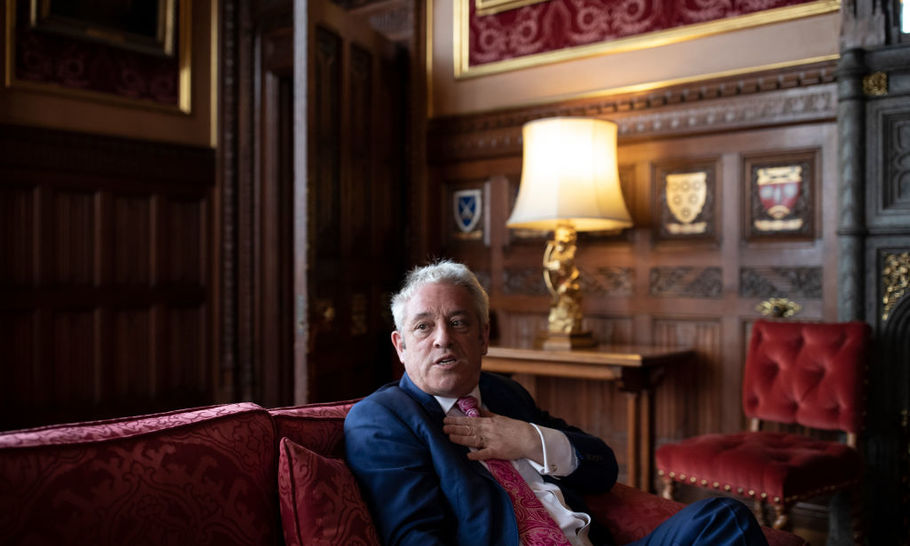This Parliament of fools has come to an end — and not before time

Dan Kitwood/Getty Images
The longest Parliamentary session since the Long Parliament is over. Few will have wished it even longer. The fateful day of prorogation ended in farcical scenes that will cause many outside it to ask: do MPs realise what a ludicrous spectacle they are making of themselves?
Boris Johnson, who went down to his sixth defeat in a week, has not exactly covered himself with glory. By dividing the country even more deeply than before, the Prime Minister has provoked the Opposition parties into using the legislature to usurp the normal function of the executive.
This usurpation could yet come unstuck, however. The EU is obliged by its own rules to reject any formal request for an extension to Article 50 unless it is clear that it comes from the executive branch of the British Government. The European Council may therefore decide to ignore the letter making that request that the Prime Minister is now obliged by law to write.
Nevertheless, Downing Street still seems to be toying with the idea that Boris Johnson might still sabotage his own request. Jonathan Sumption, the former Supreme Court Justice, has quashed such speculation. In his view, the Prime Minister cannot evade the law by sending another letter, contradicting the one prescribed by Parliament: “Not only has he got to send the letter,” Lord Sumption told the BBC, “he’s got to apply for an extension. To send the letter, then try to neutralise it, seems to me a breach of the Act.”
Much as the Opposition would love to see Boris sent down for breaking the law, it won’t happen. Nor will he end up “dead in a ditch”, except perhaps in a political sense. Parliament has now made an election before Brexit impossible. The postponement of any dissolution until at least late November will force the Prime Minister to revert to Plan A: doing a deal. As his lightning trip to Dublin demonstrates, he is deadly serious about exploring all possible modalities of the backstop in order to leave by October 31. He needs to do this in order to consolidate his support among Leavers, or watch Tory MPs be eaten alive by the Brexit Party.
If the past week has confirmed the Prime Minister’s reputation as a chancer whose gambles often come unstuck, the Leader of the Opposition has cut a feeble figure. As Lord Mandelson remarked on Newsnight, by refusing to rally Remainers around Labour, Jeremy Corbyn runs the risk of being caught in the middle of the road and run down. Jo Swinson makes it clear at every opportunity that the Liberal Democrats would revoked Article 50 and cancel Brexit. Who knows what Labour would do?
One more character emerges from the maelstrom, looking more than ever like a caricature of himself: John Bercow. Nothing became the holder of this once venerable office as much as the manner of his departure. Having devoted an hour and a half of the supposedly precious parliamentary time remaining before Prorogation to preening himself and receiving the compliments of half the Commons, while the other half ignored him, the Speaker reverted to his usual pomposity, yelling at a member who dared to dissent: “I’m not remotely interested in your pettifogging objection, chuntered inelegantly from a sedentary position. The position is as I have described it. And quite frankly, young man, you can like it or lump it.”
After a decade of such behaviour, it will be a relief to have Commons debates chaired by someone who does not think it their job to make themselves the centre of attention.
By resigning on October 31, Bercow has ensured that the next Speaker will be chosen from the present Parliament rather than a new one. Whoever succeeds him will have the daunting task of restoring some dignity to the office, while conducting the business of the House without partisanship.
England’s first great poet, Geoffrey Chaucer, wrote a poem with the title “The Parliament of Foules”. He meant fowls, of course, rather than fools; but this Parliament has fouled its own nest. Sooner or later, the reckoning will come, at a general election that may well see the voters sack their representatives on a grand scale.
This will surely go down in history as the Brexit Parliament, but it does not deserve the appellation. It cannot be accidental that its sole task has yet to be accomplished. For more than three interminable years, the Brexit Parliament has frustrated the result of the 2016 referendum. Despite having no shortage of fools and jesters, it cannot even claim to have added to the gaiety of the nation. This Parliament will not be missed.





